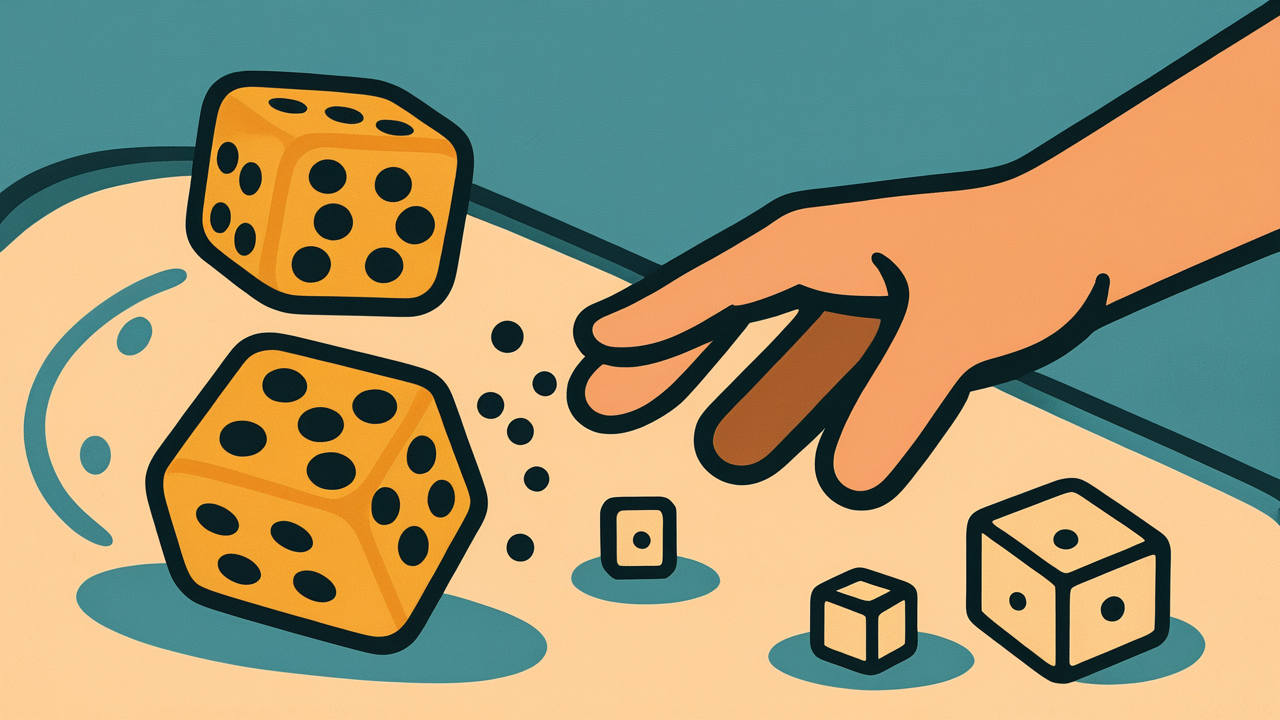How to Read “賽は投げられた”
Sai wa nagerareta
Meaning of “賽は投げられた”
“The die is cast” is a proverb that expresses having made an important decision and reaching a situation where there is no turning back.
It metaphorically expresses a situation where, using the moment of throwing dice as a boundary, one could choose their actions by their own will up until that point, but after throwing, they can only entrust themselves to fate. In other words, it is a phrase that shows the resolve to accept whatever the outcome may be once a decisive action has been taken.
The situations where this proverb is used are during important turning points in life or when making major decisions involving risk. It is employed to express one’s resolve or determination when making choices that cannot easily be undone once decided, such as changing jobs, marriage, starting a business, or relocating. It is also sometimes used to evaluate not only one’s own courageous decisions but also those of others.
In modern times, the two elements embedded in this expression—”the grace of accepting fate” and “responsibility for one’s decisions”—continue to resonate in many people’s hearts.
Origin and Etymology
“The die is cast” is actually not an ancient Japanese proverb. This is a Japanese translation of the Latin phrase “Alea iacta est” that the ancient Roman military commander and politician Julius Caesar is said to have uttered in 49 BC.
This phrase that Caesar supposedly said when crossing the Rubicon River originally meant “The dice have been thrown.” In Rome at that time, dice for gambling were common, and since the outcome of dice once thrown cannot be changed, it was used as an expression to show the determination that “there is no turning back.”
It came to Japan as a translated term along with the influx of Western culture from the Meiji period onward. The Chinese character “賽” refers to dice that originally came from China, and since it had long been used in Japan for gambling and games, this expression was naturally accepted.
What is interesting is that in the process of this phrase taking root in Japan, it became an expression that resonated with Japanese hearts beyond mere translation. The values of gracefully accepting fate and having resolve for one’s decisions may have matched Japan’s cultural foundation as well.
Usage Examples
- Now that I’ve decided to invest in a new business, the die is cast, so I have no choice but to give it my all
- The moment I proposed to her, I felt that the die is cast
Modern Interpretation
In modern society, the expression “The die is cast” is showing new expansions of meaning. This is because the very nature of our “decisions” is changing, particularly with the spread of social media and the internet.
While it was once difficult to overturn a decision once made, in modern times many things have become “redoable.” Changing jobs is no longer as major a decision as it once was, and online statements can be deleted. However, it could be said that this very fact makes the weight of “truly irreversible decisions” stand out all the more.
In modern business scenes, this expression is often used in risk-taking situations such as founding startup companies or entering new businesses. Also, due to phenomena unique to the digital age such as “going viral” or “spreading,” cases where trivial statements or actions lead to irreversible consequences have increased, and situations where “the die is cast” now occur on a daily basis.
On the other hand, modern people also tend to postpone decisions due to the abundance of choices. Perhaps it is precisely because of such times that the values of “grace in decision-making” and “responsibility for results” that this old proverb holds feel refreshingly new. For modern people who tend to be indecisive, sometimes the courage to “cast the die” is necessary.
When AI Hears This
When Caesar crossed the Rubicon, he was intuitively executing what probability theory calls “expected value maximization.” Marching on Rome meant a 30% chance of becoming emperor and a 70% chance of execution, while maintaining the status quo guaranteed political downfall—a “certain small loss.” Modern decision theory calls this a choice between “risk-averse” and “risk-seeking” behavior.
What’s fascinating is that Caesar’s judgment represents a textbook example of “prospect theory.” Humans tend to take greater-than-normal risks to avoid losses. Facing certain political death, he chose a 70% risk of physical death instead.
Even more telling, the phrase “the die is cast” itself demonstrates what game theory calls a “commitment strategy.” Once you throw the dice, the outcome can’t be changed. By declaring this irreversibility, Caesar intentionally narrowed his options and created a point of no return. Modern business calls this the “burning bridges strategy”—cutting off retreat routes to heighten an entire organization’s commitment.
The fact that an ancient Roman general was practicing decision theory that modern CEOs study today reveals the fascinating universality of human thought patterns, spanning over 2,000 years.
Lessons for Today
What “The die is cast” teaches modern people is the beauty of making decisions. We face various choices large and small every day, but we tend to postpone the more important decisions. However, this proverb teaches us that “a new story begins from the moment you make a decision.”
In modern society, there is a tendency to try to make decisions after obtaining perfect information, but in reality, perfect information does not exist. Rather, making decisions amid imperfect information and taking responsibility for the results is what leads to growth.
If you are currently hesitating about some decision, remember this proverb. By having the courage to cast the die, doors to new possibilities will open. Whatever the result may be, that experience will surely enrich you. Do not fear making decisions, and walk forward as the protagonist of your own life.



Comments